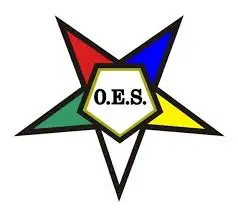
To unlock your project's potential, it's essential to grasp the fundamentals that govern its success. Each project is built on foundations such as clear objectives, a manageable budget, and a comprehensive timeline. These components serve as the backbone of your project, guiding each decision and action that follows. A well-defined objective outlines what you want to achieve, while a budget ensures you have the resources necessary to meet these goals. Additionally, a timeline establishes the framework for when tasks should be completed, helping to keep the project on track. Neglecting any of these critical elements can lead to complications that may derail your efforts. Once you have a good understanding of your project's fundamentals, the next step is crafting a strategic plan. A well-rounded strategic plan addresses all aspects of the project, focusing on deliverables, milestones, and risk management. Start by breaking down the project into smaller, manageable tasks and identify key milestones that mark significant progress. This approach not only clarifies the overall direction but also enhances accountability and allows for better monitoring of progress. Furthermore, developing a risk management framework can help anticipate potential challenges and create contingency strategies to mitigate their impact. Remember, a robust plan is adaptable, allowing for necessary adjustments as the project unfolds. Communication plays a vital role in project management. Establishing open lines of communication with team members, stakeholders, and clients ensures that everyone is aligned and informed throughout the project's lifecycle. Utilize different communication channels such as emails, meetings, and project management tools to keep everyone updated. It's also critical to promote a culture of feedback, where team members feel comfortable sharing their thoughts and insights. Regular check-ins and progress updates can facilitate a collaborative environment and help identify any issues early on, allowing for prompt action. A successful project thrives on the synergy created by effective communication. In today's fast-paced world, leveraging technology can significantly enhance your project's effectiveness. Utilize project management software to streamline processes, improve collaboration, and maintain organization. These tools can help with task assignment, deadline tracking, and resource allocation, making it easier for teams to stay on track. Additionally, consider implementing automation tools to handle repetitive tasks, securing more focus on strategic decision-making. Staying updated with technological advancements can help integrate new solutions that enhance productivity and ultimately contribute to unlocking your project's potential. The success of any project largely depends on the effectiveness of the team involved. Building a cohesive team requires understanding the strengths and weaknesses of each member, assigning roles appropriately based on their skills and expertise. Foster an environment where collaboration is encouraged and team members can complement each other’s abilities. Regular team-building activities and open discussions will enhance interpersonal relationships and create a sense of trust among members, which is crucial for navigating challenges together. Encouraging innovation is key to unlocking new possibilities within your project. Create an environment where creativity is appreciated and where team members can freely share ideas without fear of criticism. Schedule brainstorming sessions that allow for diverse perspectives and encourage out-of-the-box thinking. Additionally, recognize and reward innovative contributions, which can motivate team members to pursue creative solutions actively. Innovation can lead to improved processes, new strategies, and ultimately, a successful project outcome. One of the most effective ways to unlock your project’s potential is by embracing continuous improvement. Regularly assess processes and outcomes to identify areas for enhancement. Gather feedback from team members and stakeholders to understand what works and what doesn’t. Implement adjustments based on this feedback and keep refining your approach as the project progresses. Establishing a culture of continuous improvement ensures that your project not only meets its objectives but also adapts to changing conditions and stakeholder needs. Upon completion of your project, it's essential to evaluate its success and the lessons learned throughout the process. Conduct a thorough review of the outcomes against the intended objectives and analyze any discrepancies. This evaluation should not only focus on what was achieved but also consider the efficiency of processes and the effectiveness of team collaboration. Documenting these insights will provide valuable resources for future projects and contribute to ongoing professional development within your team. The key elements include well-defined objectives, a solid budget, a comprehensive timeline, effective communication, and continuous evaluation. Team collaboration is crucial as it enhances problem-solving, fosters creativity, and ensures that all team members are aligned towards the project's goals. Technology streamlines project processes, enhances collaboration, tracks progress, and allows for efficient resource management, significantly influencing the project's success.Unlocking Your Project's Potential
Understanding Project Fundamentals
Crafting a Strategic Plan
Effective Communication
Utilizing Technology
Enhancing Team Collaboration
Building a Cohesive Team
Encouraging Innovation
Continuous Improvement
Evaluating Success
FAQ
What are the key elements of successful project management?
How important is team collaboration in project management?
What role does technology play in project management?